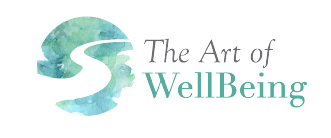The Wisdom of Grief, Fear, and Despair
The invitation for this week is to walk alongside our leader as we remember and reexperience his path of betrayal, suffering, and grief.
Lately I’ve been pondering my lifelong difficulty of accepting and learning to tolerate my own uncomfortable emotions. My personality is naturally future-oriented and eternally optimistic, and at first glance, these qualities might seem to be helpful in leadership and in life. I gravitate to visioning the big picture, seeing possibilities, setting goals, and constantly reframing failure as partial success. However, I am not so good at recognizing, much less embracing, grief, despair, and fear. And I know that I am part of an entire generation who prefer to deny, resist, and minimize our experiences of these “negative” emotions.
In her book Healing Through the Dark Emotions, psychotherapist Miriam Greenspan emphasizes the importance of building tolerance for the difficult emotions we all experience. She suggests that rather than avoiding or suppressing them, we should learn to embrace and work with them constructively. She argues that these emotions are not inherently negative but are rather essential aspects of human experience. When I coach others or offer spiritual direction, I am able to be fully present with their uncomfortable feelings. Yet when the dark emotions are my own, I am often resistant and impatient.
Greenspan coined the term “emotional alchemy” to describe a transformative process by which we can learn to work with our emotions to facilitate healing, positive change, and growth in our lives. Similar to the concept of alchemy in traditional chemistry, where practitioners sought to transmute base metals into gold, emotional alchemy involves transforming “negative” emotions into opportunities for personal development and spiritual growth.
A first step is to acknowledge and accept these emotions without judgment through practices of mindfulness and self-reflection. I am reminded of the Alcoholics Anonymous practice of accepting “what is.” We begin to accept “what is” by first noticing and then naming the uncomfortable feeling. We allow the emotion to emerge as it wants to emerge. And we slow down enough to let the emotion affect us.
Holy Week invites this journey into uncomfortable darkness by way of accepting “what is.” We live in a world where violence and hatred are plentiful—if we have the courage to keep our eyes open. There are always losses to grieve, reasons to despair, and opportunities to be afraid. It is tempting to turn away, to deny or suppress emotions that might temporarily overwhelm us or knock us off course.
Yet the leader whose footsteps we follow embodies the transformative power of acceptance and yielding as a form of strength rather than weakness. Yielding to what wants to emerge requires humility and a willingness to relinquish control. It requires trust and deep faith in a wisdom and strength greater than our own.
As we grow our tolerance for dark emotions, Greenspan believes we cultivate resilience and inner strength. She invites us to experience that such tolerance (acceptance + yielding) alchemizes grief into gratitude, despair into faith, and fear into joy. When we skip over the stories of Maundy Thursday, Good Friday, and the vigil of Holy Saturday we skip over opportunities for healing and transformation.
This week, slow down and allow the sadness, the anger, and anxious uncertainty.
Make space to acknowledge and accept your dark emotions—to stretch and grow your tolerance of them.
Yield to the divine alchemy of the cross.
Walking with you,
Vicki
